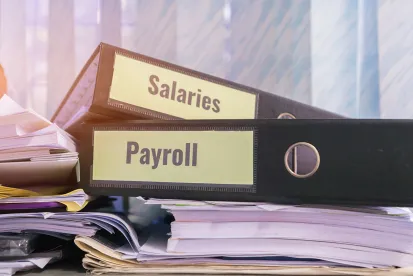To mitigate the economic effects of COVID-19, on March 27, 2020 Congress enacted the Coronavirus Aid, Relief, and Economic Security Act (CARES Act). This is the third in a series of bills that addresses concerns related to COVID-19. Sections of the CARES Act contain tax relief provisions for businesses. These sections are summarized herein.
Employee Retention Credit
A refundable payroll tax credit is available for employers if paid by eligible employers to certain employees during the COVID-19 crisis. The credit is for 50 percent of the first $10,000 in wages (including health benefits) per qualifying employee paid after March 12, 2020 and before January 1, 2021. The credit is calculated on a quarterly basis, but the aggregate amount of qualified wages for all quarters for each employee may not exceed the $10,000 threshold.
The credit is available to the following employers (which includes nonprofits but not governmental entities):
-
employers whose operations have been fully or partially suspended as a result of a government order limiting commerce, travel, or group meetings; and
-
employers who have experienced a greater than 50 percent reduction in quarterly receipts, measured on a year-over-year basis.
The employees covered by this credit vary depending on the number employed by the employer. For employers who had an average number of full-time employees in 2019 of 100 or fewer, all employee wages are eligible, regardless of whether the employee is furloughed. For employers who had more than 100 full-time employees on average in 2019, only the wages of employees who are furloughed or face reduced hours as a result of their employers' closure or reduced gross receipts are eligible for the credit.
The CARES Act includes anti-abuse measures that prevent employers from double-counting wages used to determine the employee retention credit in the calculation of other credits such as the Work Opportunity Tax Credit and the Employer Credit for Paid Family and Medical Leave. In addition, the credit is not available to employers receiving small business loans under the Paycheck Protection Program, so employers need to weigh the merits of these two courses of action.
The IRS is granted authority to advance payments to eligible employers and to waive applicable penalties for employers who do not deposit applicable payroll taxes in anticipation of receiving the credit.
Delay of Payment of Employer Payroll Taxes
Employers are required to withhold employment taxes related to Social Security and Railroad Retirement from wages paid to employees. Self-employed individuals are subject to self-employment tax and essentially pay the employer and employee portions of Social Security.
The CARES Act allows taxpayers to defer paying the employer portion of Social Security and Railroad Retirement taxes through the end of 2020, and for self-employed individuals to defer paying half of the taxes required under IRC 1401(a). One half of those deferred payroll taxes are due by December 31, 2021 and the other half by December 31, 2022.
Net Operating Losses for Corporate Taxpayers
Generally, a net operating loss (NOL) deduction is limited to 80 percent of taxable income (computed without regard to the NOL deduction) for tax years beginning after December 31, 2017, and an NOL for any tax year may not be carried back but may be carried forward indefinitely.
The CARES Act permits an NOL deduction to temporarily offset 100 percent of taxable income and provides that NOLs arising in a tax year beginning after December 31, 2017 and before January 1, 2021 can be carried back to each of the five tax years preceding the tax year of such loss. In addition, these changes will allow companies to utilize losses and amend prior year returns to request refunds, which should provide critical cash flow and liquidity.
Loss Limitations for Non-Corporate Taxpayers
For tax years beginning after December 31, 2017 and ending before Jan. 1, 2026 these non-corporate taxpayers cannot deduct excess business losses. Excess business losses are the excess of the taxpayer's aggregate trade or business deductions for the tax year over the sum of the taxpayer's aggregate trade or business gross income or gain plus $250,000 (as adjusted for inflation). In other words, non-corporate taxpayers could only deduct up to $250,000 in excess of their business net income, which can be used to offset nonbusiness income.
The CARES Act retroactively removes this loss limitation for non-corporate taxpayers for 2018, 2019 and 2020. Non-corporate taxpayers that were previously subject to the excess business loss limitation in those years will enable those taxpayers to amend their tax returns to claim the additional loss and receive a refund.
Corporate Minimum Tax Credit
Corporations used to be subject to the alternative minimum tax (AMT). The AMT was repealed for tax years after 2017, but corporate taxpayers may still have outstanding AMT credits to use. Corporate taxpayers may claim outstanding MTCs (subject to limits) for tax years before 2021, and in 2021 any remaining MTC may be claimed as fully refundable.
The MTC is refundable for any tax year beginning in 2018, 2019, 2020 or 2021 in an amount equal to 50 percent (100 percent for tax years beginning in 2021) of the excess MTC for the tax year, over the amount of the credit allowable for the year against regular tax liability.
The CARES Act changes the tax years in which MTC is refundable to just 2018 and 2019, and makes them 100 percent refundable in 2019. So the CARES Act allows corporations to claim 100 percent of AMT credits in 2019. Moreover, the CARES Act also provides for an election to take the entire refundable credit amount in 2018.
Interest Expense Limitation
The Tax Cuts and Jobs Act of 2017 generally limited the amount of business interest allowed as a deduction to 30 percent of adjusted taxable income. The CARES Act temporarily and retroactively increases this limitation to 50 percent for tax years beginning in 2019 and 2020.
Taxpayers may elect out of the increase for any tax year in the time and manner the IRS prescribes. Once made, the election can be revoked only with IRS consent. For partnerships, the election must be made by the partnership and can be made only for tax years beginning in 2020.
In addition, taxpayers can elect to calculate the interest limitation for their tax year beginning in 2020 using the adjusted taxable income for their last tax year beginning in 2019 as the relevant base.
Qualified Improvement Property
The Tax Cuts and Jobs Act of 2017 (TCJA) amended the depreciation rules to allow 100 percent additional first-year depreciation deductions (100 percent bonus depreciation) for certain qualified property. It also eliminated pre-existing definitions for (1) qualified leasehold improvement property, (2) qualified restaurant property, and (3) qualified retail improvement property. It replaced those definitions with one category called qualified improvement property (QI property). A general 15-year recovery period was intended to have been provided for QI property. However, that specific recovery period failed to be reflected in the statutory text of the TCJA. Under the TCJA, QI property falls into the 39-year recovery period for nonresidential rental property. That makes the QI property category ineligible for 100 percent bonus depreciation.
The CARES Act provides a technical correction to the TCJA and specifically designates QI property as 15-year property for depreciation purposes, which makes QI property a category eligible for 100 percent bonus depreciation.
Excise Tax for Alcohol Used to Produce Hand Sanitizer
For any breweries/distilleries that have transitioned to hand sanitizer production, the provision waives the federal excise tax on any distilled spirits used for or contained in hand sanitizer that is produced and distributed in a manner consistent with guidance issued by the Food and Drug Administration and is effective for calendar year 2020.




 />i
/>i
